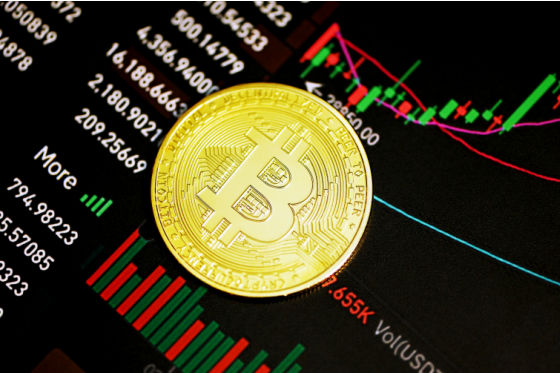Bitcoin Part 1: A Disruptive Technology That’s Here To Stay

There are thousands of different cryptocurrencies currently in circulation. Some were created to perform groundbreaking technological functions like smart contracts (Ethereum), while others were simply created as a means of satire (Dogecoin). For the purposes of this article, we will focus on the most widely known cryptocurrency system, Bitcoin, which makes up roughly half of the entire market value of all cryptocurrencies.
Often referred to as “digital gold,” Bitcoin has been described as “the most powerful and disruptive technology of our lifetime” by Michael Saylor, a major Bitcoin proponent and CEO of Microstrategy. Saylor described Bitcoin as “[a] digital property … used to demonetize other forms of property in the same way digital books sucked the information out of libraries, physical books, and universities.” In other words, Bitcoin acts as a digital currency without external influence from foreign or domestic governments and/or banks.
Other prominent adopters of Bitcoin technology include companies such as Tesla, Square and PayPal. Not only are major companies embracing the idea of cryptocurrency, but entire countries have adopted it as their legal tender. El Salvador became the first country to do so, with more countries expected to follow suit. Bitcoin has the capability to assist millions of people all over the world who do not have access to bank accounts or a functional currency. Zimbabwe and Venezuela have recently experienced periods of hyperinflation, which as a result made their respective currencies essentially worthless. Many believe Bitcoin can act as a hedge against inflation due to the fact that, as a currency system, it has a finite number of bitcoins – capped at 21 million in its originating source code. This number cannot be adjusted or inflated by any central authority, i.e., governments or banks, making Bitcoin beyond the reach of political manipulation – at least from a structural standpoint.
It appears the public may fear the use of cryptocurrency due to its propensity for wild price swings, as the property is typically bought and sold through online exchanges. One example is a runup to nearly $20,000 per bitcoin from under $1,000 in 2017. Once the “peak” was identified, it ultimately crashed back down to around $3,000. In the current year to date, a bitcoin has been as low as $29,000 but as high as $65,000. This is not to suggest bitcoins are a suitable investment for all individuals. However, as a technology and a potential investment vehicle it is something that should be taken seriously by everyone.
To put this into context, consider another revolutionary technology – the internet. The internet was invented in 1983 and it took just over 17 years for the dot-com bubble to peak. Now, almost 40 years after being invented, the internet is an integral part of society globally, much more so than anyone could have ever imagined. Another prime example is Amazon – what started as an online book retailer with a few million dollars in annual sales has grown into one of the largest and most profitable companies in the world, changing demand not only for bookstores but for physical retailers of almost every kind.
If you consider the internet to be the digitization of information, then Bitcoin could be considered the digitization of money. Bitcoin is currently in its 13th year of existence, with a current adoption and growth rate comparable to that of the internet. Pay attention to this rapidly growing technology or risk being behind in this new monetary environment that could be descending upon us.
Please check back in for Part II of this article, which will discuss Bitcoin from a financial and tax perspective.
NOTES:
- Internet access is needed to buy or sell a bitcoin(s) but otherwise it can be held offline, such as on a hard drive or flash drive.
- The most popular way to buy or sell bitcoins is via an exchange, like Coinbase, but you can also buy bitcoins through PayPal or a trading app like Robinhood Markets. There are also bitcoin ATMs. A bitcoin is considered property though, not a security like a company stock.
- While the price for one full bitcoin can look quite high, an owner can buy / sell a fraction of one bitcoin. The smallest denomination of one bitcoin possible to use is 0.00000001, so it goes out no further than eight decimal places; this smallest-divisible portion of one bitcoin is called a Satoshi.
* This article is not a complete listing of all the details related to this tax topic and you should contact your CPA for a more detailed discussion regarding these items and how they may apply to your specific situation.
Photo credit: Executium, unsplash.com

